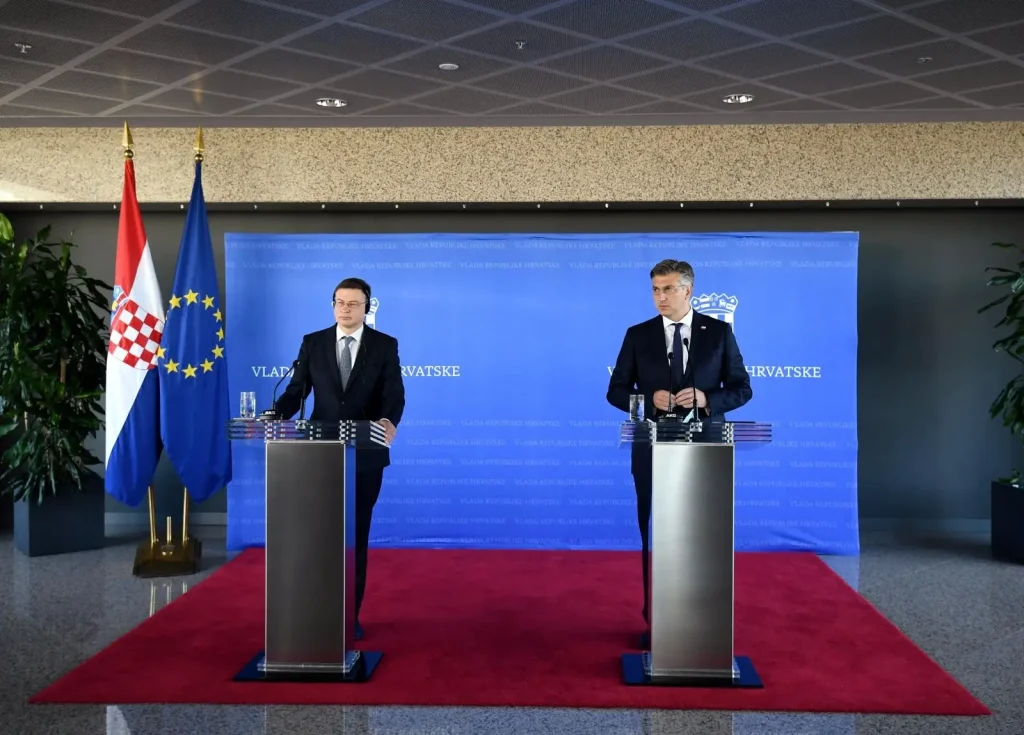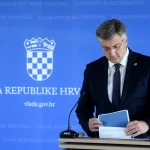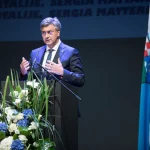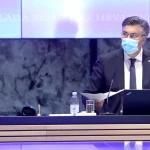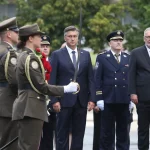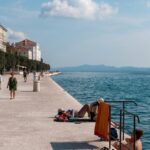Speaking at the 11th meeting of the national council for the introduction of the euro as Croatia’s official currency, Plenković said Croatia had the full support of the European Commission and the European Central Bank to join the euro area.
“We approached this process in a very structured way, carefully. We believe we will fulfill in time all the commitments we undertook by entering the Exchange Rate Mechanism.”
He said the government regularly discussed reform implementation in money laundering prevention, the business environment, public administration management, and the justice system, adding that he was confident all the ministries involved would fulfill what had been agreed.
Highly euroized economy
Plenković reiterated that over 60% of Croatia’s export was to EU member states, over 60% of tourists in Croatia came from the euro area, over two-thirds of savings and half the loans in Croatia were in euros and that Croatia was already a highly euroized economy.
The experience of the countries which joined the euro area shows that it benefitted both their citizens and economies. Entering the euro area will eliminate the currency risk and exchange costs, reduce interest rates, boost foreign investment, and increase the possibility of financing on the capital market, which we are sure will have an additional effect on our credit rating, Plenković said.
That will also facilitate exports and tourist arrivals, he added.
By comparing pay and price trends in new member states, one can conclude that gross wages increased considerably in relation to price growth, he said. “Living standards increased considerably after the introduction of the euro.”
Plenković reiterated that Croatia would have €25 billion in EU funds at its disposal in the years ahead.
“We expect an advance of €818 million could arrive in Croatia in the weeks ahead and, with the GDP growth we saw in the second quarter and which, after such a successful tourism season, will certainly be such in the third quarter as well, to embark on strong economic recovery, strengthening the resilience of the Croatian economy, quality of life, and raising the standard of our fellow citizens.”
Dombrovskis: EC strongly supports Croatia’s work and ambition to join the euro area
The European Commission Executive Vice President of for an Economy that Works for People Valdis Dombrovskis said at the meeting the Croatian government had shown a strong political will and set ambitious goals.
The Commission strongly supports the work and ambitions of the government and other Croatian institutions to join the euro area, which requires meeting all Maastricht criteria, he added.
Your economy is recovering well and will receive support via the recovery and resilience plan. Croatia is the biggest recipient of EU funds. 11.6% of GDP has been allocated to Croatia in grants, he said.
Dombrovskis said taking the euro path was worth it as it would lead to a more prosperous economy.
Asked by the press about the current inflationary pressures and if prices would go up once Croatia joined the euro area, the Commissioner said one should carefully monitor the impact of introducing the euro on prices also while preparing to introduce it in order to prevent significant price growth.
He said that when the euro was being introduced, product prices were being monitored in two currencies, among other things so that citizens could get used to prices in euros.
The relevant authorities will also have to monitor prices. Latvia, for example, where Dombrovskis was prime minister, conducted a campaign for a fair and equitable introduction of the euro.
Everything that was necessary was done to prevent the introduction of the euro from being used to raise prices, and even retail chains took part in the campaign, he said.
He added that no significant price increase was registered in the Baltic countries that entered the euro area last.
Plenković told the press there was no need for a referendum on euro adoption, explaining that during its referendum on its European Union’s admission, Croatia also assumed the obligation to enter the euro area.
For more on politics, follow TCN’s dedicated page.

